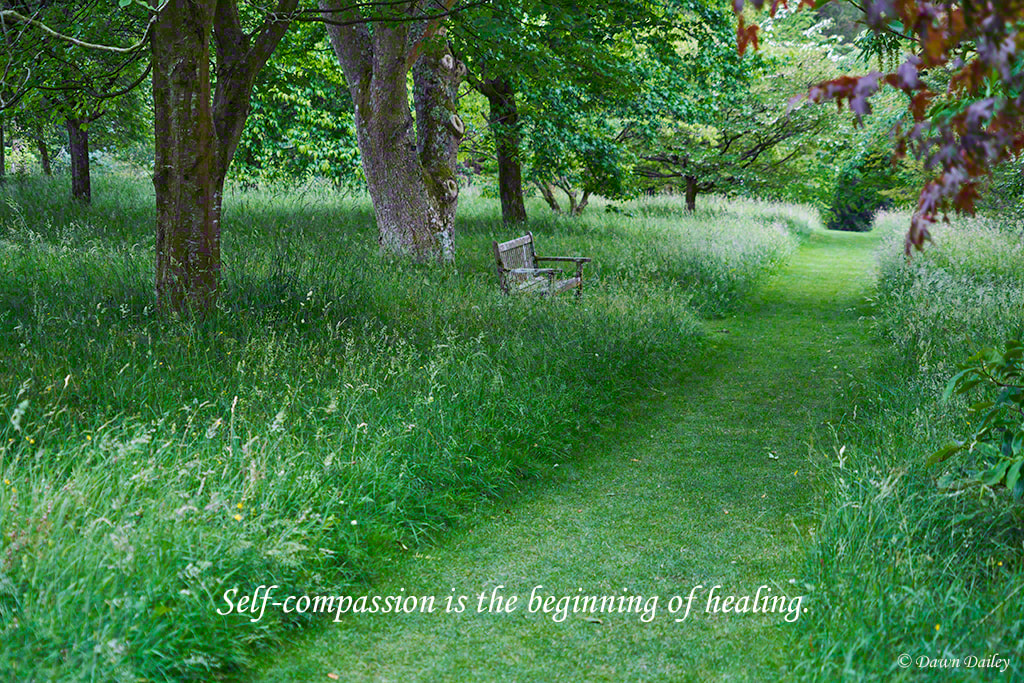His friend has just been killed. Yet, instead of returning to his busy ministry, he steals away to a quiet place to acknowledge his pain and to pray. Soon the plethora of needy people find him, as they always do when he takes time out to care for himself. But without these respite moments, however fleeting, his mortal body and emotional health would lack the strength to meet the demands of this divine calling. Sailing the boat closer to the shore where a bedraggled crowd awaits him, he looks into their anxious faces and feels their anguish deeply. Stepping out of the boat and wading to the shore, he begins to do what he can to alleviate their suffering.
Sandwiched between the horrific story of the beheading of John the Baptist and the narrative known as the Feeding of the Five Thousand, we find Jesus withdrawing to a solitary place to mourn. When His alone-time is cut short by the impatient crowd, Jesus nonetheless has compassion for these needy people and He continues to minister to them by healing their sick.
As recorded in the gospels of Matthew, Mark, Luke, and John, Jesus demonstrates a compelling picture of compassion as He heals the sick, raises the dead, and feeds the hungry. But Jesus is also a noteworthy illustration of self-compassion as He often pulls away from the penurious crowds to find respite in solitude and prayer.
Compassion is defined as “a feeling of deep sympathy and sorrow for another who is stricken by misfortune, accompanied by a strong desire to alleviate the suffering.” It is more than just putting yourself in someone else’s shoes; it’s doing what you can to help. Compassion is empathy in action.
If compassion is showing empathy to someone else, then self-compassion is obviously showing empathy to ourselves. It’s like the safety instructions at the beginning of a flight telling us to don our oxygen mask before helping someone else with theirs. In order to be kind and compassionate, we have to first be kind and compassionate to ourselves. But as Shakespeare says in Hamlet, “Ay, there’s the rub”!
Just as Jesus pulled away from the demands of life to mourn and to pray, we too need to stop our busyness to recognize our own losses and hurts. Facing ourselves honestly by identifying our pain is the beginning of healing. But often, that’s where we get stuck. Acknowledging our own hurts is painful.
We’re all broken in some way. It’s impossible to experience life without emotional and psychological scrapes, bruises, and trauma. But it is possible to accept our weaknesses and brokenness without judgment while rejoicing in our strengths and moving towards healing. Often it takes the expertise of a good therapist to help us see our brokenness, understand our hurts, and begin a new path of healing.
Jesus says in John 16:33, “In this world you will have trouble. But take heart! I have overcome the world.” Suffering and pain are a normal part of the human experience. Jesus’ practice of self-compassion shows us the importance of embracing suffering in order to begin healing. To accept and embrace our suffering means saying to ourselves, “I acknowledge that pain and I give myself kindness and compassion around it.” Self-compassion is the beginning of healing.
Shame often prevents us from showing compassion to ourselves. Guilt is saying we have done a bad thing; shame is saying we are a bad person. Shame teaches us that we are not worthy, that we are not enough, that we are less than. But God says we are worthy simply because we are His. What is it about yourself that you would not want the world to know? The answer may reveal a place of shame that needs self-compassion. When we acknowledge shame and utilize the tool of self-compassion, we become free to be who God created us to be.
Sometimes the lack of self-compassion shows up in negative self-talk. Most of us would never dream of talking to others like we talk to ourselves. Paying attention to those self-condemning thoughts that circle inside our brains like tapes on an endless loop can actually stop them in their tracks. When we notice these negative thoughts, we can counter them with kind thoughts, just as you would comfort a hurting friend. If we continue interrupting these negative thoughts, we rob them of their power. Self-compassion creates new tracks; we’re no longer stuck circling in a holding pattern of negative thoughts. We land on a new runway of self-love, self-acceptance, and self-forgiveness.
Loving ourselves and being kind to ourselves is the beginning of a new road to compassion. When we can hold space for our own self-compassion, we find the emotional energy to extend that compassion to others. In a society that is often lacking in kindness, we can put empathy in action by showing compassion to those who are less fortunate than ourselves, to those who are discriminated against, and to those in our society who are the most vulnerable. While we may not be able to heal the sick like Jesus did, when we land in a place of self-compassion, we can look out on the sea of faces around us, experience true compassion, and do what we can to alleviate the suffering around us.
Dear Jesus, help me to emulate Your practice of self-compassion. Help me overcome the barriers of shame and negative self-talk that so often rob me of accepting compassion and kindness from myself and even from You. May my new-found self-compassion actively overflow into a sea of empathy that gently surrounds those in need with Your love and mercy. May I actively take arms against their sea of troubles for those suffering and by showing compassion, end as much suffering as I can. For Your glory, Amen.
To learn more about self-compassion, I highly recommend the book Self-Compassion: The Proven Power of Being Kind to Yourself by Kristen Neff.
Text and photographs copyright © 2021 by Dawn Dailey. All rights reserved. Photo of a lone bench on a pathway in Bodnant Garden, near Colwyn Bay, Wales.
Not a subscriber to the monthly blog posts? Click here to subscribe.
A NOTE ON RACIAL JUSTICE: Becoming antiracist is a journey. Together, we can make a difference. Will you join me? Check out my web page on “Justice Matters” to find resources and to connect with organizations engaging in the cause of racial justice. Click here to learn more.
All scripture quotations, unless otherwise indicated, are taken from the Holy Bible, New International Version®, NIV®. Copyright ©1973, 1978, 1984, 2011 by Biblica, Inc.™ Used by permission of Zondervan. All rights reserved worldwide. www.zondervan.com The “NIV” and “New International Version” are trademarks registered in the United States Patent and Trademark Office by Biblica, Inc.™
Flowers near the water lily pond at Bodnant Garden, Wales:



 RSS Feed
RSS Feed